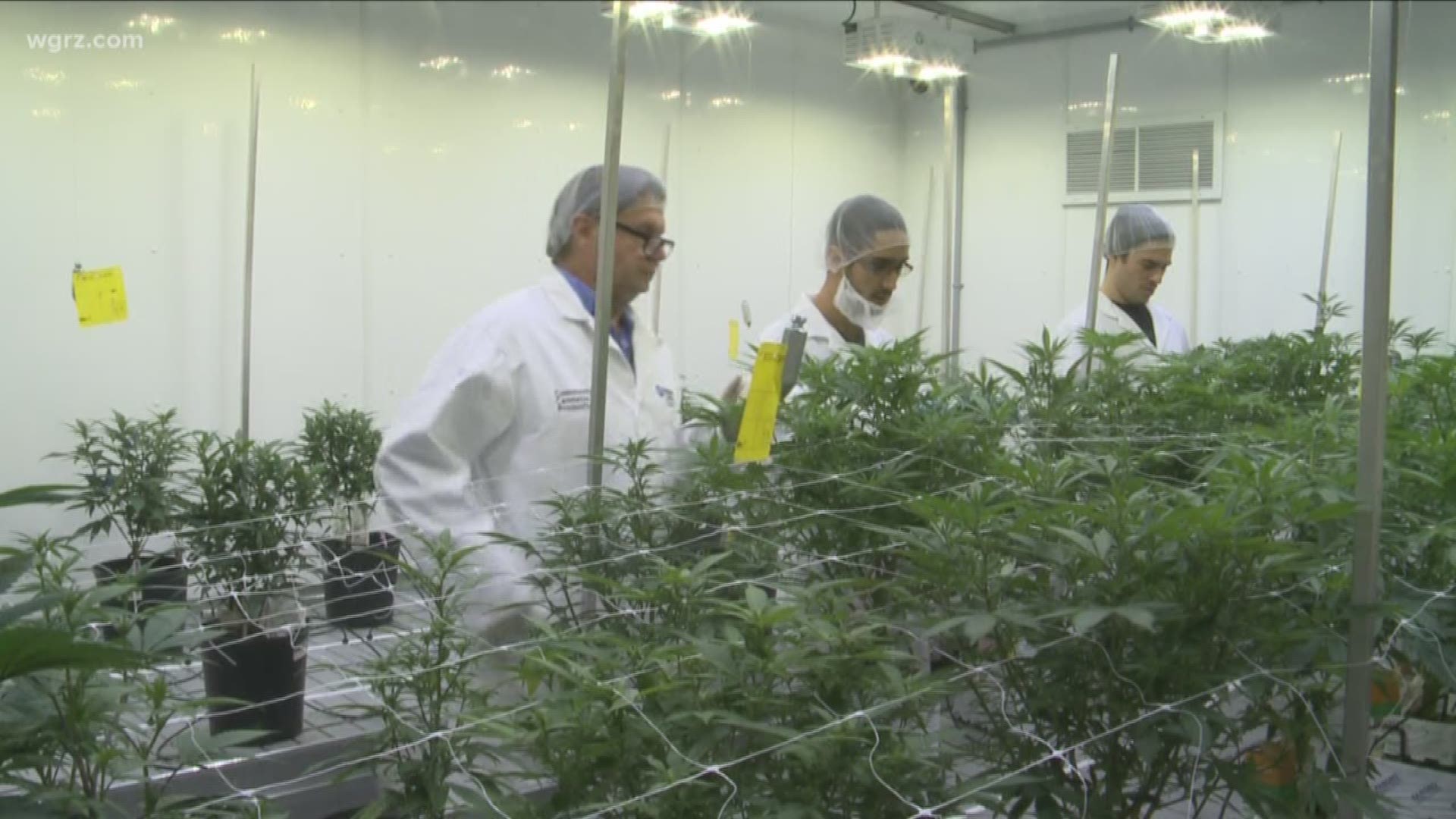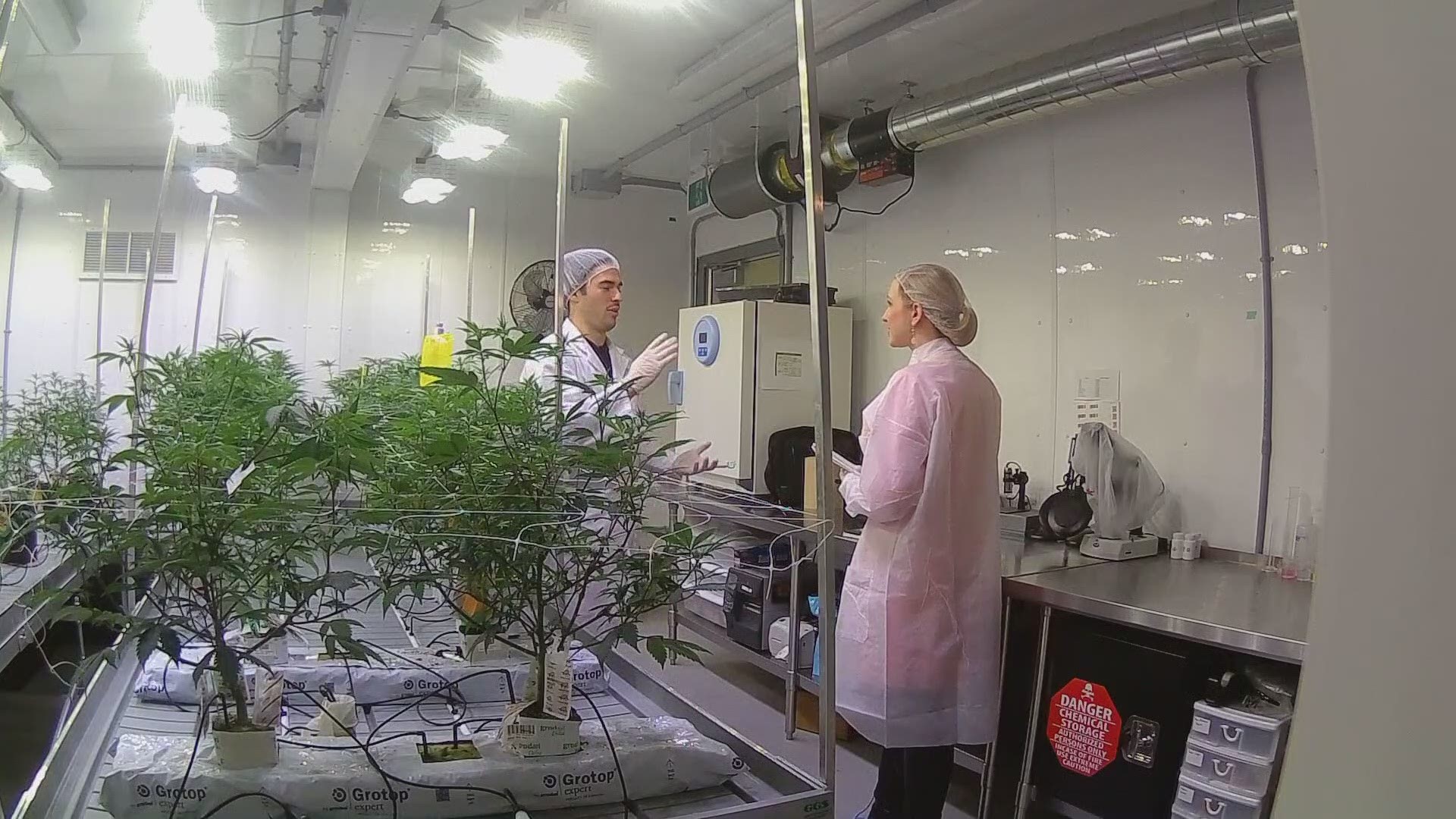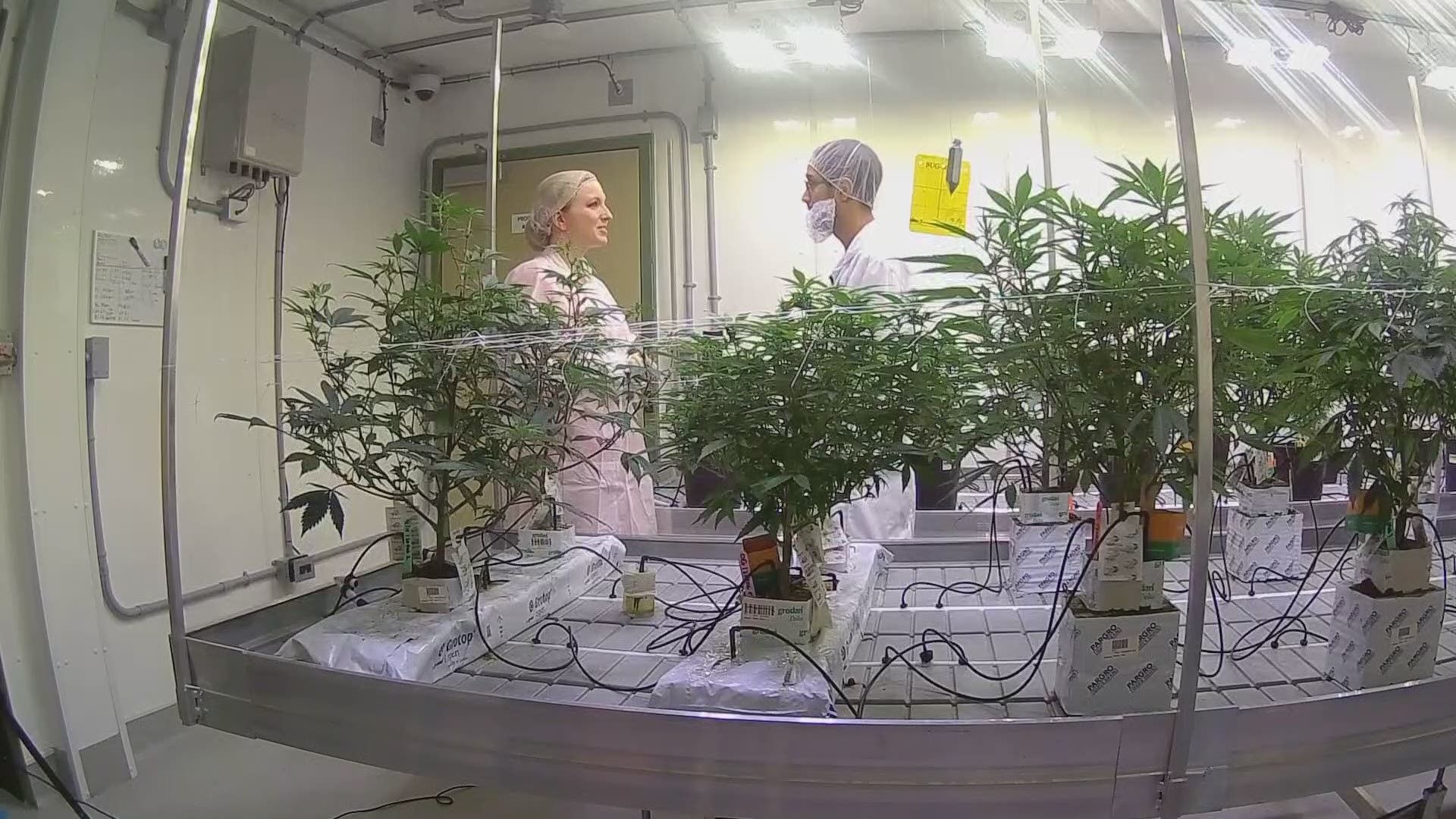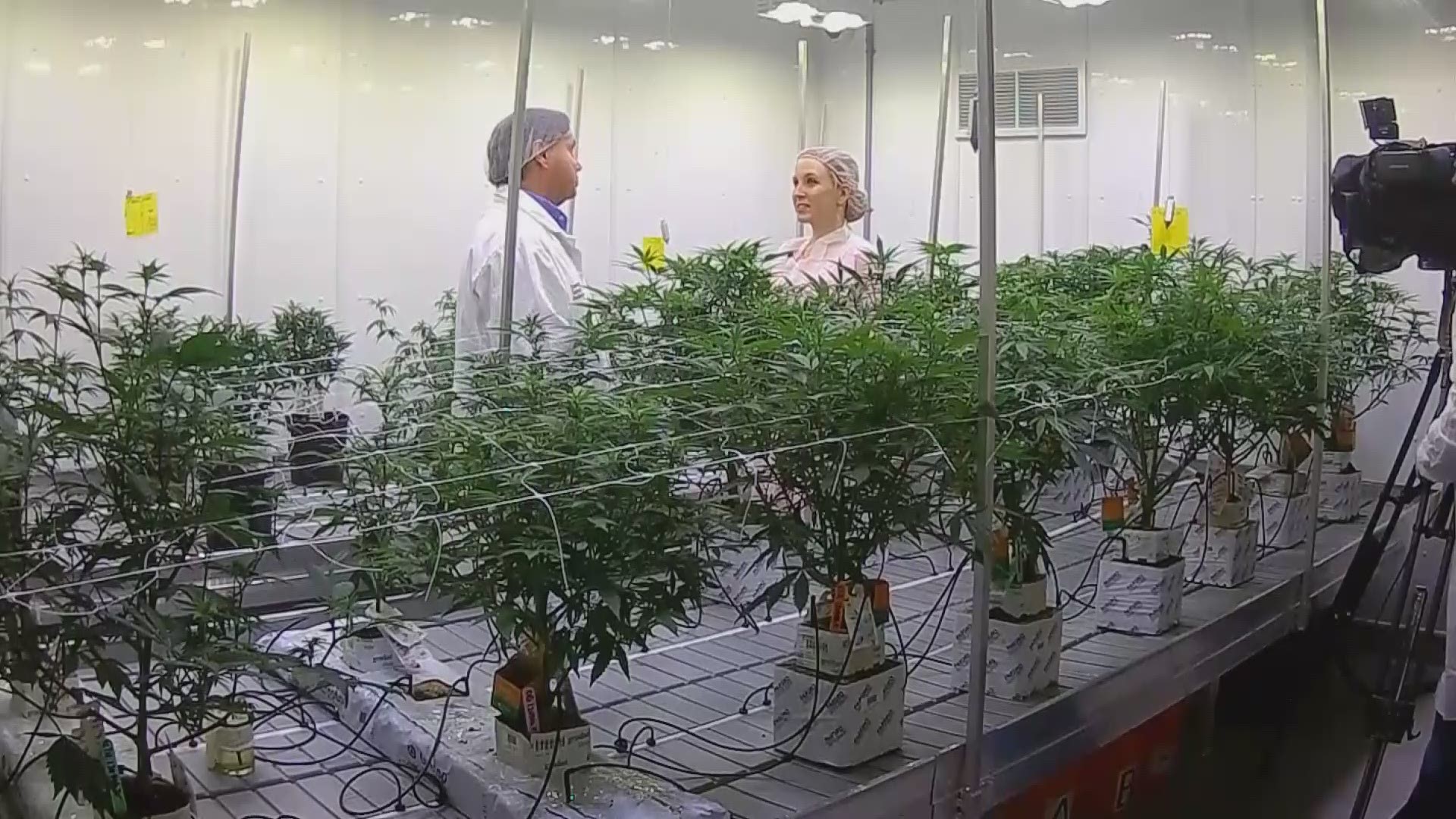NIAGARA-ON-THE-LAKE, ONT. – 2 On Your Side is taking you to cannabis college, the only program of its kind in Canada where students earn a graduate certificate in Commercial Cannabis Production.
Students in the program go to class in Niagara-on-the-Lake at Niagara College Canada. Inside five retrofitted shipping containers, you'll find the students hard at work looking to launch their careers in the budding cannabis industry.
"What got you interested in this?" asked 2 On Your Side’s Kelly Dudzik.
"Well, I've always loved cannabis all the way through high school and whatnot, and it's always been a passion of mine," said student Carson Otto.
"It seemed like a logical step for me as the industry was opening up and there's just a huge need for growers, right? Huge need for educated people," replied Denzil Rose.
Carson Otto and Denzil Rose are two of the first Canadians accepted into the Commercial Cannabis Production Graduate Certificate Program at Niagara College. Otto was a chemical engineer trying to get into the pharmaceutical field. Rose graduated from the greenhouse technology program at the college last year.
The cannabis program only accepts 24 students three times a year. More than three-hundred applied for September's inaugural class.
"What's the reaction you get from people when you tell them that this is what you're going to school for?" asked Dudzik.
"Older people are like wow congratulations, it's a growing industry. Then the younger people, you know, give me props and they're like nice, you're growing weed in school," says Otto.
"Like even my grandma's going around telling people, hey, my grandson, he's growing pot at school. So, it's pretty awesome to see that and get that reaction from people," says Rose.
"Here, we have the benches where we're actually growing the cannabis. And we have the plants here. We're teaching the students different methods of growing," explained Bill MacDonald inside the lab.
MacDonald is the Coordinator of the Commercial Cannabis Production Program. He's also a professor. He was the coordinator of the greenhouse technician program at Niagara College, when five years ago, he started consulting in the cannabis industry.
"And saw how much it was transforming the greenhouse industry and approached the college and said, hey, we need to do a program because this is transforming the whole greenhouse industry, growing industry, and a lot of licensed producers were coming to me saying we need qualified growers. We don't have enough experienced talented people," says MacDonald.
MacDonald says college leadership was on board.
"Everything here was specially built. As you see, when you came in...eight-foot fence, barbed wire, cameras everywhere, so it's 24/7 surveillance. Keypad, pin pad to get in, so yeah...it's a massive, massive commitment," says MacDonald.
And, since there's nothing else out there like it, MacDonald built the one-year Graduate Certificate Program from the ground up.
"We did it with licensed producers. We went to them, said, 'What do you need?' Then we had them come in and critique it and then, okay, how do we change it? So it's been really built with the licensed producers," says MacDonald.
"That way you know once students go through the program they will have skills they'll actually be able to use in the field," said Dudzik.
"Exactly, we're not telling licensed producers this is what you get. They told us what they wanted and that's what we're teaching the students," said MacDonald.
To be considered, you have to have a diploma or degree in a related field like Agricultural or Plant Sciences. While the major focus is growing, this is the only program where they're growing plants, there's a lot more to it.
"So, this is a really well-rounded program because they are learning about the chemistry of the plants, the biology of the plants, and then also the business side of things," said Dudzik.
"Yes, the business side for sure. And the big thing is the regulations. Everything has to be done, everything has to be documented. We take a leaf off a plant, we have to document that. Seriously," says MacDonald.
"What do you think would surprise people about what you're learning? Anything?" asked Dudzik.
"Well, I think it's surprising that we're going to school for growing weed. I think that's a surprising factor for sure. But it depends on who you talk to. Like I said a lot of people who don't know about growing think it's a very easy thing. So, a lot of the things we're learning people don't even think about when growing weed, right?" said Otto.
Otto says wants to work for a licensed producer and eventually start his own business.
Rose hopes to work up the ladder and become a master grower.
"It's not just an underground business anymore. It's a very legitimate business and people want to go to school for this to prove the legitimacy and prove the professionalism, and I think that's a hugely important factor. And this is a multi-billion-dollar industry so it's only going to expand globally," says Rose.
That's something the college realized early on and is taking into consideration as the program evolves.
"What does the future look like for the program?" asked Dudzik.
"I think for now, we're going to keep with our three intakes per year. 24 students is what we feel we can train well given the facilities we have here. We have been encouraged to look at perhaps increasing the number of individuals we can let in, but we don't want to give up the hands-on approach that we're taking," says Alan Unwin, Associate Dean of the School of Environmental & Horticultural Studies at Niagara College.
MacDonald thinks many of the students will have jobs lined up before they graduate.
"What advice do you have for them if they want to study cannabis?" asked Dudzik.
"Be professional. This is really all about knowing your science. Knowing your regulations. Go in with your eyes open that it's a really emerging field. There's a great future; You're going to have to work hard and long hours," says MacDonald.
MacDonald says entry level salaries in Canada are likely in the $50,000-$60,000 range. Right now, the Commercial Cannabis Production program is only open to Canadians.




